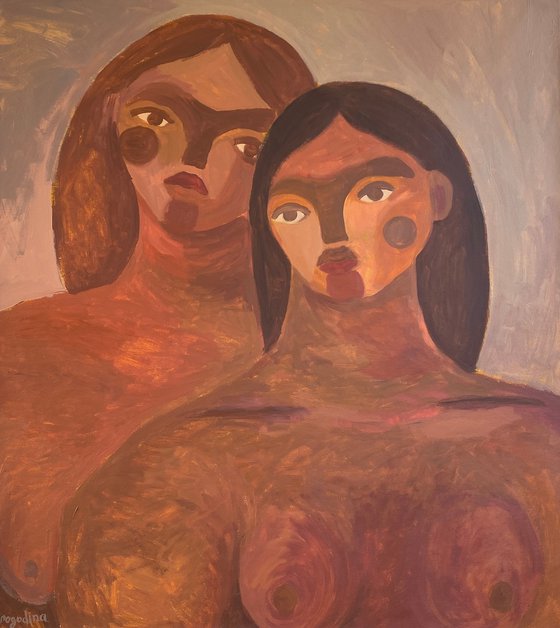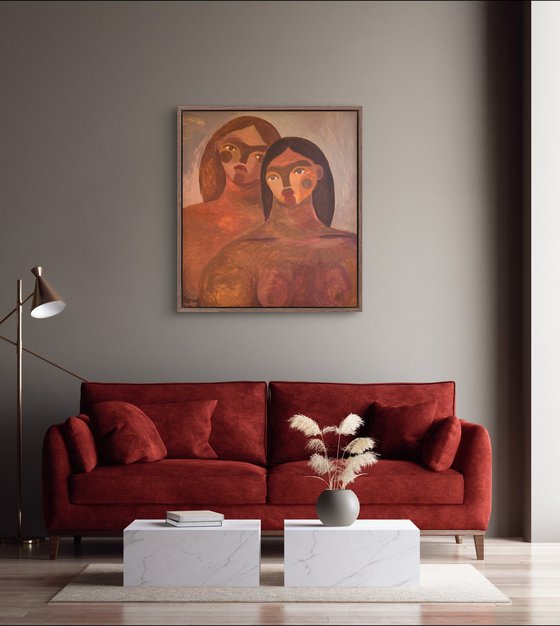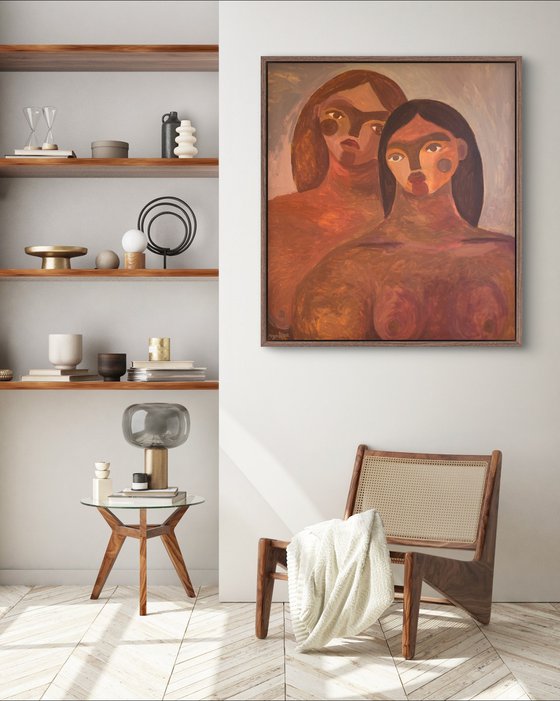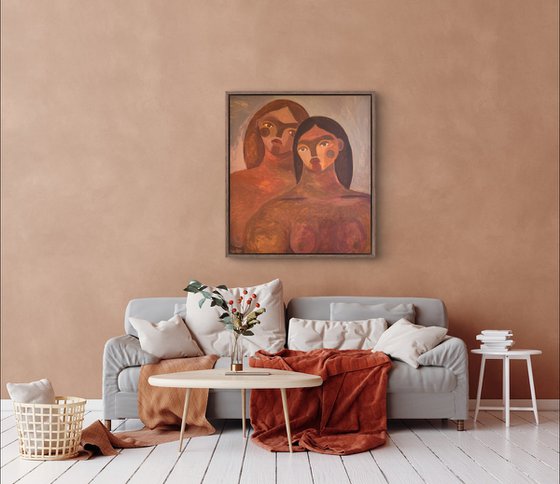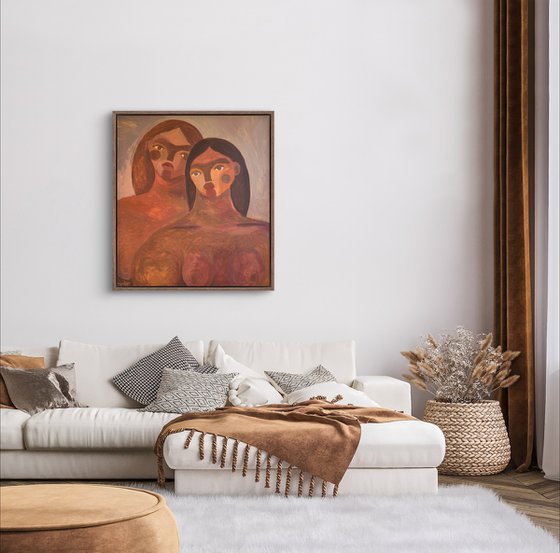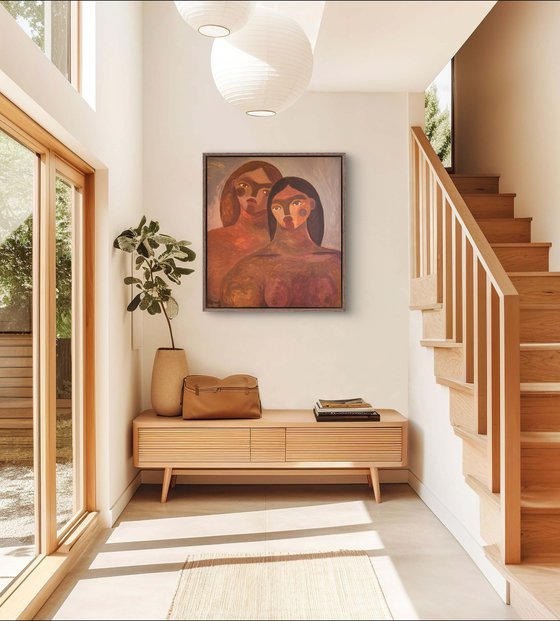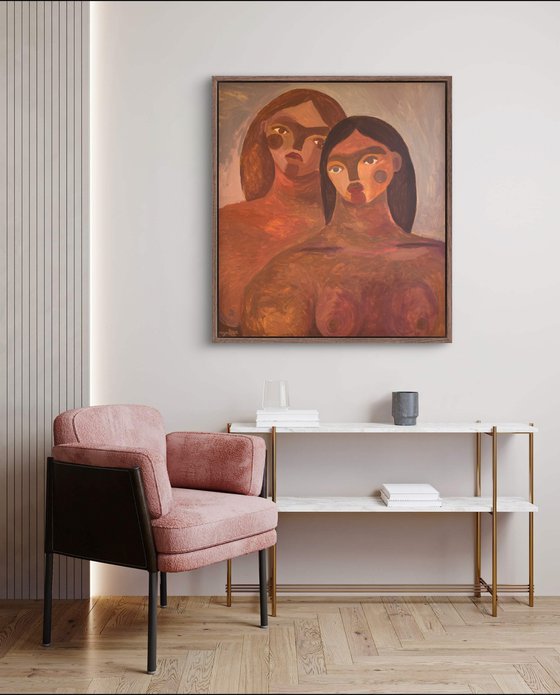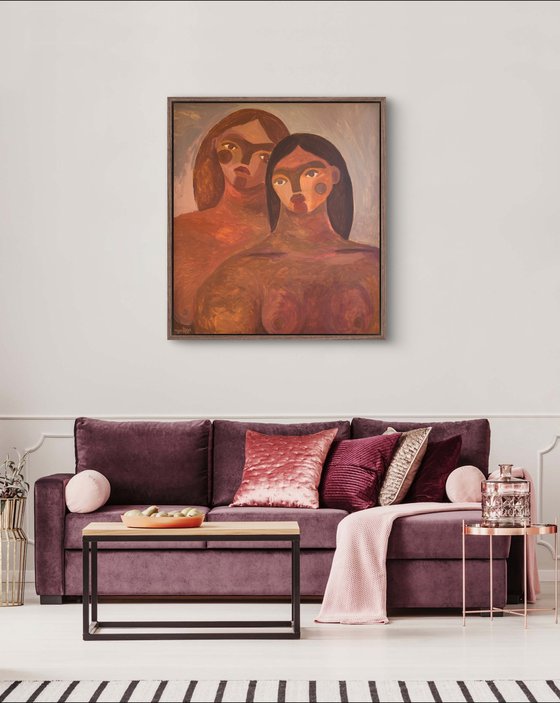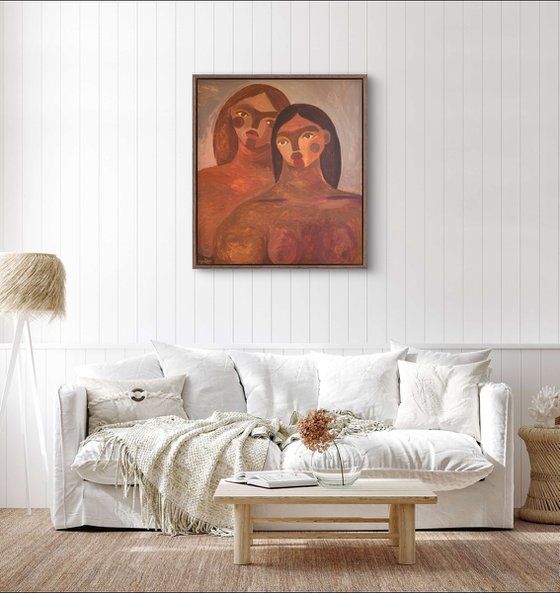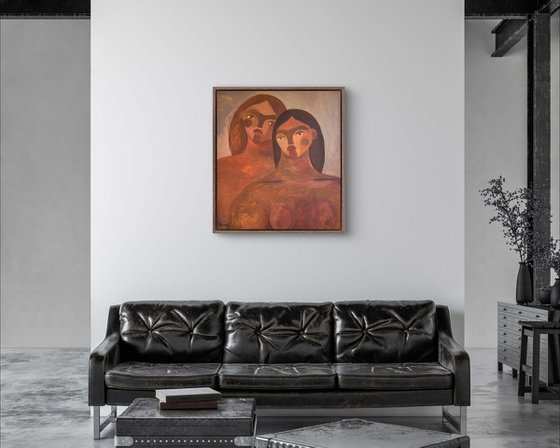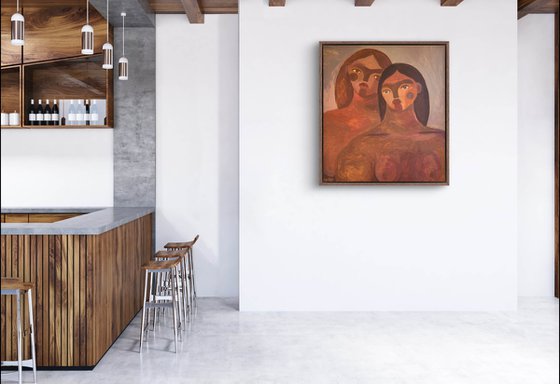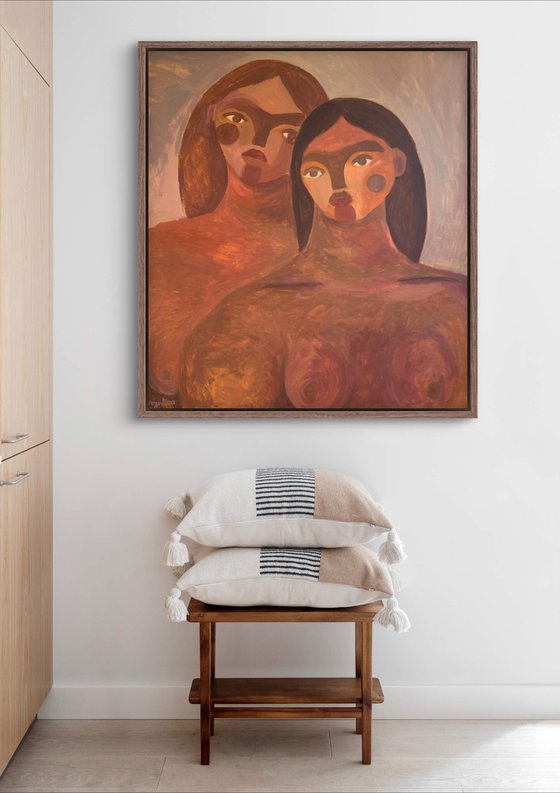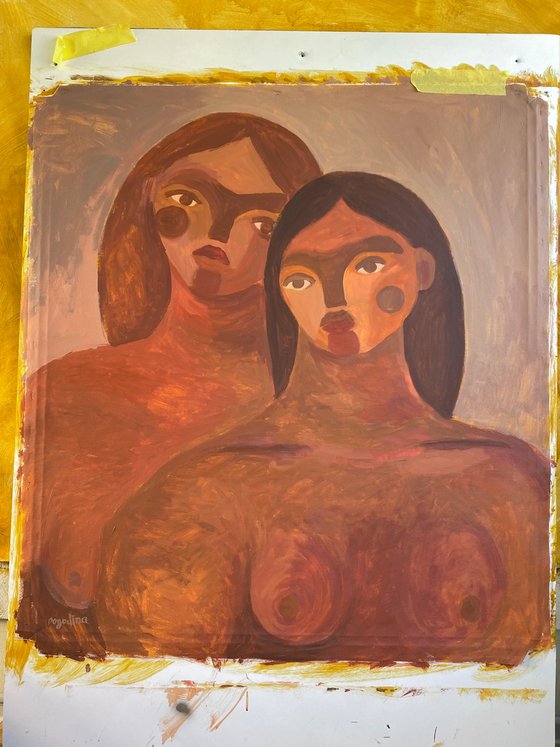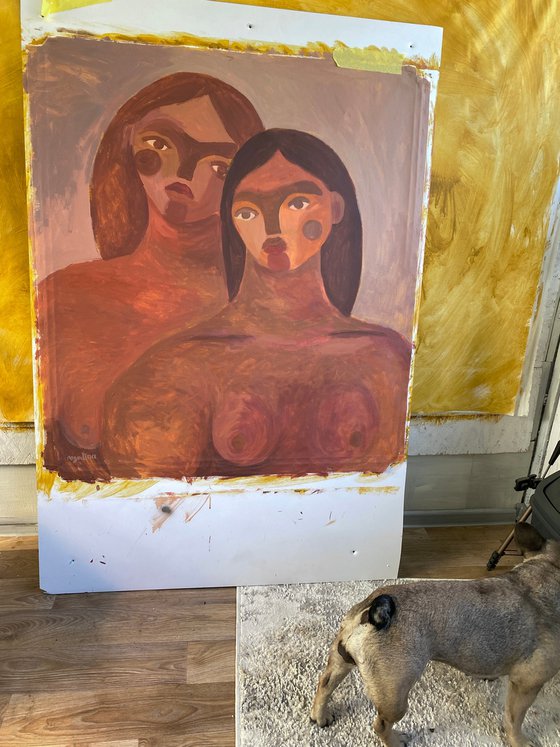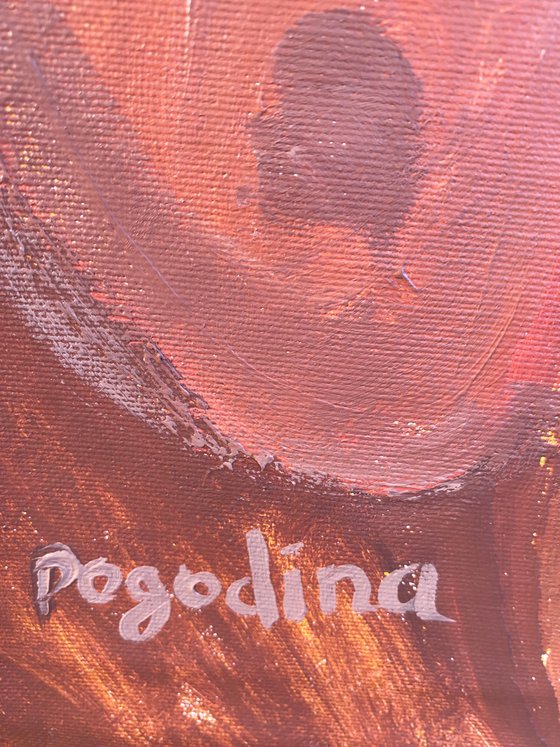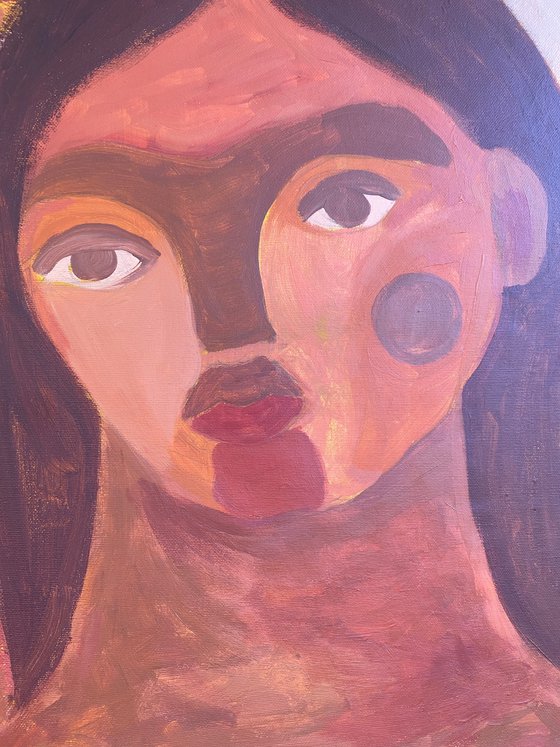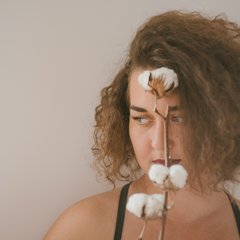- By medium
- By subject
- By budget
- Sales
- Gift cards
- Discover all art
- Artists
- Editors’ picks
- Ideas
Original artwork description:
This painting will come to you stretched on a wooden stretcher and completely ready to be placed in the interior.
ABOUT THE ARTWORK
"We Can Cry and Laugh Together" from the "PERICHORESIS SERIES" celebrates the deep and multifaceted relationships where emotional vulnerability is embraced and shared. This painting highlights the strength found in being able to express the full spectrum of emotions with someone—joy, sorrow, and everything in between. It underscores the importance of having those in our lives who stand by us through various emotional states, offering support and understanding. The artwork praises the genuine connections that form when people share both their happiest moments and their challenges, creating bonds that are deeply rooted in mutual empathy and compassion.
PERICHORESIS SERIES
“Perichoresis” (ancient Greek περιχώρησις - “interpenetration”), a theological term meaning the mutual penetration of divine parts into each other, to describe a unique union that does not imply mixing or merging, but emphasizes an indivisible unity.
Daria explores the theme of new sexuality, deliberately choosing a term from theological treatises for her series of works.
With this gesture, she protests against the dictates of religion, the church’s manipulation and pessimization of human sexual manifestations and physicality, the false meanings and concepts with which religions have burdened, and instead of building true connections and bridges for man and God, they build walls.
“Perichoresis” for her is a beautiful and complex term that describes the fusion of the divine and the material. Having grown up in the Protestant tradition within an Orthodox society, Daria notes the common separation of sexuality from divinity in all these religions, while she sees sexuality as the clearest manifestation of divinity, beauty, and sublimity.
The artist notes that Christian culture has invested the image of the female body with a narrative of pornographic tension, while at the same time presenting paradise before the Fall as a sexual paradise, the Garden of earthly pleasures. For the artist, sexual paradise is a safe environment, complete trust, acceptance, the opportunity to open up and discover the Other, the opportunity to learn to be loved and to love.
Love is an environment where merging does not dissolve in another person, but on the contrary, strengthens the individuality of each and enriches each other.
Thus, the artist reminds that the division into the sublime and the low in love is artificial, and overcoming this division can make life more beautiful. The heroes of her paintings are immersed in the enigmatic space of love, and sometimes there are ironic scenes that balance the degree of sublimity.
Materials used:
Acrylic
Tags:
#figurative #girl #woman artworkWe can cry and laugh together (2024) Acrylic painting
by Dasha Pogodina
4 Artist Reviews
£1,122.37
- Acrylic painting on Canvas
- One of a kind artwork
- Size: 90 x 100 x 2cm (unframed) / 90 x 100cm (actual image size)
- Ready to hang
- Signed on the front
- Style: Impressionistic
- Subject: People and portraits
Loading
Original artwork description
This painting will come to you stretched on a wooden stretcher and completely ready to be placed in the interior.
ABOUT THE ARTWORK
"We Can Cry and Laugh Together" from the "PERICHORESIS SERIES" celebrates the deep and multifaceted relationships where emotional vulnerability is embraced and shared. This painting highlights the strength found in being able to express the full spectrum of emotions with someone—joy, sorrow, and everything in between. It underscores the importance of having those in our lives who stand by us through various emotional states, offering support and understanding. The artwork praises the genuine connections that form when people share both their happiest moments and their challenges, creating bonds that are deeply rooted in mutual empathy and compassion.
PERICHORESIS SERIES
“Perichoresis” (ancient Greek περιχώρησις - “interpenetration”), a theological term meaning the mutual penetration of divine parts into each other, to describe a unique union that does not imply mixing or merging, but emphasizes an indivisible unity.
Daria explores the theme of new sexuality, deliberately choosing a term from theological treatises for her series of works.
With this gesture, she protests against the dictates of religion, the church’s manipulation and pessimization of human sexual manifestations and physicality, the false meanings and concepts with which religions have burdened, and instead of building true connections and bridges for man and God, they build walls.
“Perichoresis” for her is a beautiful and complex term that describes the fusion of the divine and the material. Having grown up in the Protestant tradition within an Orthodox society, Daria notes the common separation of sexuality from divinity in all these religions, while she sees sexuality as the clearest manifestation of divinity, beauty, and sublimity.
The artist notes that Christian culture has invested the image of the female body with a narrative of pornographic tension, while at the same time presenting paradise before the Fall as a sexual paradise, the Garden of earthly pleasures. For the artist, sexual paradise is a safe environment, complete trust, acceptance, the opportunity to open up and discover the Other, the opportunity to learn to be loved and to love.
Love is an environment where merging does not dissolve in another person, but on the contrary, strengthens the individuality of each and enriches each other.
Thus, the artist reminds that the division into the sublime and the low in love is artificial, and overcoming this division can make life more beautiful. The heroes of her paintings are immersed in the enigmatic space of love, and sometimes there are ironic scenes that balance the degree of sublimity.
Materials used:
Acrylic
Tags:
#figurative #girl #woman artwork14 day money back guaranteeLearn more
